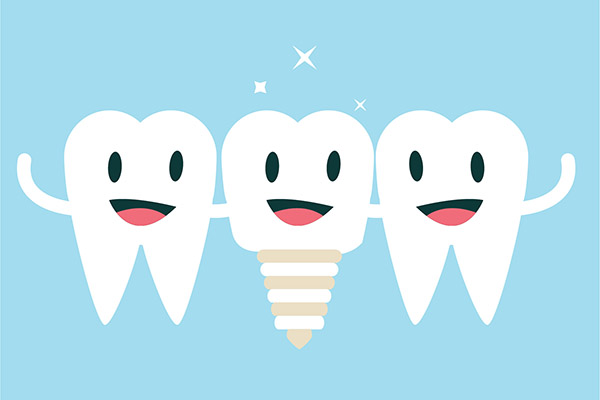 Implant dentistry includes the entire treatment implant process, from the consultation visit to providing aftercare and educational services to ensure the implants remain in good condition. The following review discusses how you can get the most out of your dental implants through good aftercare practices.
Implant dentistry includes the entire treatment implant process, from the consultation visit to providing aftercare and educational services to ensure the implants remain in good condition. The following review discusses how you can get the most out of your dental implants through good aftercare practices.
Implant dentistry FAQs: How to care for your dental implant restorations
You can care for your dental implant restoration by implementing a good oral care routine at home, reducing the impact of damage to the implants, natural teeth, and the gums through smart dietary choices, and avoiding dental trauma, along with regular implant dentistry check-ups and cleaning visits with the dentist.
What should my oral care routine look like with dental implants?
For the most part, patients are able to care for their dental implant restorations the same way they would natural teeth. Most notably, this includes a consistent daily oral care routine that involves brushing the entire mouth, flossing to remove food particles and plaque between teeth, and using mouthwash as directed to kill excess bacteria inside the mouth. Regular dental visits with the dentist are important every four to six months as well.
Are there any dietary restrictions with dental implants?
One of the benefits of dental implants is that they allow the patient to chew at an optimal level, so eating tougher foods is an option. However, it is always encouraged to protect teeth and gum health by limiting the consumption of carbohydrates (including sugar) and drinking water throughout the day to keep bacteria washed away.
How can I reduce the risk of dental trauma?
Dental trauma is one of the more common reasons for early complications with dental implants. It is important to take caution and do all that is possible to prevent dental trauma, primarily by wearing a mouthguard during physical activity (i.e. contact sports) and while sleeping at night if the person struggles with bruxism.
What can I do to prevent stains with dental implants?
Most implant dentistry restorations are able to resist stains well, but stains can still develop. To minimize the risk, it is encouraged to limit foods and drinks that could contribute to stains, such as tomato-based dishes and coffee. It is also encouraged to avoid smoking or tobacco products as well.
How long can I expect my dental implants to last?
Depending on the quality of the implant dentistry aftercare, dental implants can last as long as twenty years or more in many cases. The restorations (i.e., crown, bridge, or denture) may need repair or replacement before the implant.
Learn more about implant dentistry during a consultation visit
If you have questions about implant dentistry and want to find out if treatment is right for you, or if you have received dental implants in the past and need a check-up and cleaning visit or dental implant repair or replacement, call our dental office today. We can set up a convenient time for you to come in for a visit.
Request an appointment or call Igor Tkachuk DDS at 718-416-6422 for an appointment in our Staten Island office.
Related Posts
You may be a good candidate for an implant dentistry procedure if you are missing one or more teeth and desire the highest quality (and most natural) restoration possible. This review discusses what an implant dentist looks at when determining if a patient is a good candidate for the procedure.Ideally, implant dentistry patients should have…
Patients missing one or more teeth may benefit from implant dentistry, which offers long-term replacement options. Continue reading to learn about replacing a single lost tooth with an implant. Implants are used to hold single crowns, bridges, or a whole set of teeth in place. Their application as fixed restorations, whether for single or multiple…
If you have opted for implant dentistry to replace your missing teeth, you will need to decide on fixed or removable restorations. Read on to learn about implant dentistry and your options. Removable implant-supported restorations can be snapped on and off the abutments anytime there is a need to take off. In contrast, fixed restorations…
